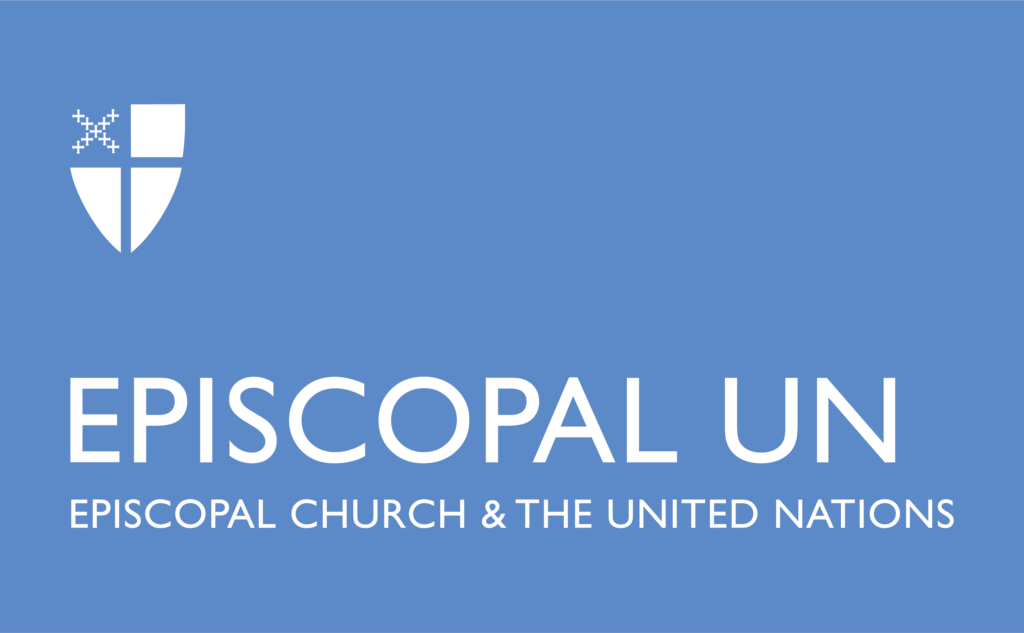Her Story: #CSW63 – Chiseche Mibenge, Ph.D., Diocese of El Camino Real
During the United Nations Commission on the Status of Women’s 63rd session (CSW63), our Church is present through the voices of many Episcopalians. Over the next few weeks, our blog series “Her Story: #CSW63” will feature the individual voices and stories of these Episcopalians in their own words. In doing so, we not only amplify our own voices but join up with those in our wider ecumenical family through Ecumenical Women, a coalition of faith-based Christian organizations who are featuring the same theme. Follow our stories via the Episcopal Church and the UN blog, Facebook and Twitter platforms and hashtags #EpiscopalCSW, #EpiscopalUN, and #CSW63. Interested in guest blogging? Contact us at Lynnaia Main.
Today, we feature guest blogger Chiseche Mibenge, Ph.D. from the Diocese of El Camino Real, a delegate with the Presiding Bishop’s delegation of The Episcopal Church.
My mother was the first girl from her village in the Eastern Province of Zambia to be allowed to go to elementary school. Her grandfather advocated for her education when many argued that school would only expose her to predatory male teachers and ruin her prospects for marriage. She excelled as a student, graduated from high school and went on to college.
My mother is now in her seventies, and I recently asked her why she was not receiving a teacher’s pension like her best friend, my Auntie Banda. My mother reminded me of a time when she was a schoolteacher and dating my father, a young Army officer. The school’s Headmaster sexually harassed her so aggressively that she ‘chose’ to walk away from her classroom. She never returned to teaching. She escaped the headmaster’s advances but lost her pension. I first heard this story as a teenager but it is only now, in my mid-forties, that I fully realize the economic tragedies of this story for an elder, past her retirement age.
Fifty years or so after my mother ended her teaching career, I ‘chose’ to leave my classroom because my employer refused to address sexual harassment that my students and I experienced. I escaped a sexist workplace, but I lost benefits and a job status and security that I have yet to recover. In addition, as an African woman working in the US, I experience a racialized gender wage gap. The National Partnership for Women and Children (2018) reports that Black and Latina women who work full time, year-round are typically paid 63 cents and 55 cents respectively, for every dollar paid to white men. I am grateful that my parents value me as much as Society values its sons. However, the fact remains that my mother and her daughters have been shortchanged.
These are just some of the realities that will color my contribution to advocacy for women’s rights, as a representative of Bishop Michael Curry at the UN. UNCSW’s priority theme stresses in part, that women and girls need adequate social protections and specifically refers to barriers to accessing pensions and savings. Anecdotes about sex discrimination are legion amongst my female family members and I agree with Bishop Curry that transformation requires interventions and infrastructure that are socially, economically and environmentally sustainable and gender aware. In this way, equal access to education, employment, health care, etc. would not concomitantly subject women and girls to physical, psychological or economic exploitation.
I am proud to belong to a Church that has officially affirmed United Nations international agreements and conventions calling for just and equal treatment of women and girls and I stand behind the advocacy priorities of Bishop Michael Curry at UNCSW.
Chiseche Mibenge, Ph.D. is the Director of Community Engaged Learning for Human Rights at Stanford University. She has published widely on armed conflict, transitional justice, and gender-based violence and has taught human rights courses at the City University of New York’s Graduate Center, Lehman College and the University of San Francisco. She is a board member of Episcopal Relief and Development. Chiseche studied Law at the University of Zambia and obtained her Ph.D. in International Human Rights Law from Utrecht University’s School of Law.


